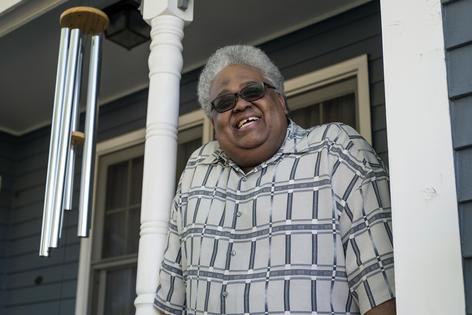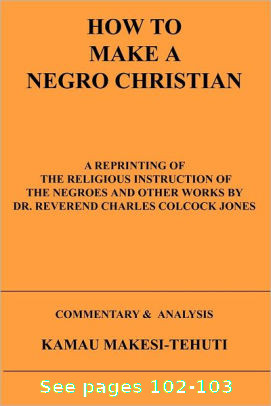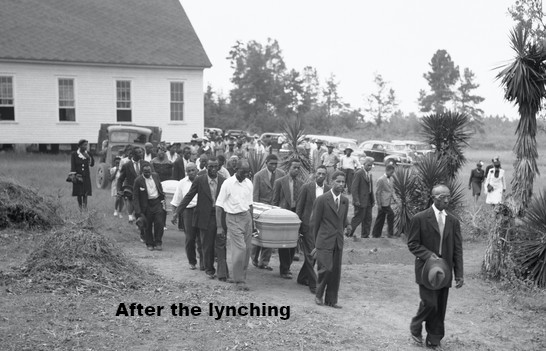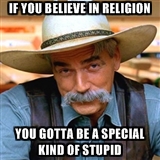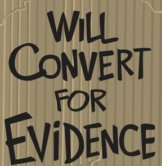
| The Rev. Dr. J. Anthony Lloyd: The meaning of Juneteenth is perhaps more important this year than ever | June 20, 2020 |
|---|---|
| Jeannette Hinkle | Metrowest Daily News |
|
The Rev. Dr. J. Anthony Lloyd, pastor of the Greater Framingham Community Church, at his home in Marlborough. [Daily News and Wicked Local Staff Photo / John Walker]
FRAMINGHAM - Juneteenth is a fraught holiday, one filled with painful contradictions. This year, said the Rev. Dr. J. Anthony Lloyd, pastor of Greater Framingham Community Church, it is especially important as a day that acknowledges what he called "the other side of American history." Often called Emancipation Day or Freedom Day, Juneteenth memorializes the day in 1865 that enslaved people in Galveston, Texas, learned they were free. The news came late, a full 2 1/2 years after President Abraham Lincoln signed the Emancipation Proclamation on Jan. 1, 1863. Juneteenth is a joyous day in many respects, a day to celebrate and revel in freedom. But it is also a somber day, a day commemorating the lateness of that freedom, and the disconnect between the laws governing the treatment of Black Americans and the actual treatment of Black Americans in this country, Lloyd said. "Those things that we put in place, whether they are legal statutes or what have you, the implementation of them comes late," Lloyd said. "Part of the coming late is an understanding that I can make a law, and the law says you must act and treat me a certain way. The change of one's heart, though, is a whole different process." Lloyd said Juneteenth is a useful framework through which to view the protests that have swept the nation since Memorial Day, when a white Minneapolis police officer knelt on the neck of a Black man named George Floyd for nearly nine minutes, killing him. While Floyd's death is widely seen as the catalyst for the demonstrations, protestors calling for racial justice and police reform have also chanted the names of other Black Americans killed by police, and sometimes their neighbors, in recent months and years: Breonna Taylor, Ahmaud Arbery, Tamir Rice, Eric Garner, Fredie Gray. In Framingham, people have said the name of Eurie Stamps, who was killed in 2011 by a city police officer during a raid at Stamps' home.

"The frustration out there in the street of folks protesting is that there has not been the recognition of accountability for people in positions of power," Lloyd said. "And consequently, this feeling of we are once again at it again, and whatever recourses that we have, they don't work for a segment of society. So therein lies the frustration." Lloyd, who has served as pastor at Greater Framingham Community Church for 28 years, has a layered relationship with police. He grew up in Philadelphia under the reign of Frank Rizzo, the city's police commissioner and later its mayor. President Donald Trump wrongly attributed the phrase "when the looting, starts the shooting starts" - which he tweeted after protests in Minneapolis turned violent - to Rizzo, who he called a "very tough mayor." The phrase actually originated with former Miami Police Chief Walter Headley, who said it in 1967 during civil rights protests. "I lived under his police brutality as a child," Lloyd said of Rizzo. Since then, Lloyd said he has seen change. Three of his siblings have served as police officers in the same department once headed by Rizzo, who the U.S. Department of Justice accused in 1979 of overseeing police abuse that "shocks the conscience," and ran for office on the slogan "vote white," according to The New York Times. In Framingham, Lloyd has made an effort to get to know each new police chief, and understand any bias he might bring to the table. He said he understands the hurt of being painted with a broad brush. With this week's news that current Chief Steven Trask is retiring, Lloyd said he's ready to forge a relationship with a fourth Framingham police chief.

Lloyd said that while he recognizes progress has been made, Floyd's death ripped open old wounds, for him, and for Black Americans nationwide. It was a traumatizing reminder that the work America needs to do to dismantle systemic racism remains woefully unfinished, he said. "For the African-American community, this event, this devastation, is a continuance of this point of not having your voice heard," he said. For Black Americans, the experience of watching Floyd's death, recorded on cellphones by bystanders who pleaded with Officer Derek Chauvin to take his knee off Floyd's neck, was visceral, not intellectual, Lloyd said. "This is something which, as a Black or brown person, I wake up every day and I live with," Lloyd said. "I do not take it on as an agenda. Some folk live to protest. I protest to live, because it's a survival mode. Every day I go out of my house and have to take it and deal with all these kinds of encounters of overt and subvert racism." This week, Lloyd participated in a conference call with seniors in his congregation who cannot gather in person because of the ongoing pandemic. The seniors, some who grew up in the South and marched for civil rights in the 1950s and '60s, wanted to talk about the protests. He heard an exchange between two congregants that stuck with him, partly because of its seemingly contradictory nature. They were discussing the hope they felt at watching footage of thousands of people marching for racial justice across the country, from major cities to small towns. But then, the hope was tempered. "Here's one senior citizen to the other: 'So you know, we ain't going out these days because of the virus, but when we venture out, it means you need to be careful. You need to be watchful,'" Lloyd said. "So they can articulate an attitude of hopefulness, that change is happening, but at the same time, they live with the tension." Lloyd said he wants more Americans to understand what it means to live with that tension, the hope and the fear. "Maybe Juneteenth can help bring that home a little bit more, that tension," he said. "Because guess what? When word got out to Texas that two and a half years earlier the Emancipation Proclamation was signed and therefore you are free, it did not remove the day-to-day reality of what it meant to be a slave in Texas. An African American experience is one where we take the pain of our existence and put it into a reality that does not deny the pain, but celebrates the aspiration of the hope." Jeannette Hinkle is a reporter at The MetroWest Daily News. Reach her at jhinkle@wickedlocal.com.
Between January 1, 1863 when the Emancipation Proclamation was signed and Juneteenth, 1865, the most important shift in the Civil War occurred. Nearly 100,000 pieces of property were converted into armed federal troops who were now going against their former masters. Regretably, J. Anthony Lloyd has allowed himself to be enslaved by an imaginary creature. At least back in the old days, the masters were human, and now it is merely an imaginary creature, like Bugs Bunny or the Road Runner. You have to admit how humorous this is. That boy J. Anthony Lloyd is about as sharp as a sack of wet mice.
|
|
Send comments to:
 hjw2001@gmail.com
hjw2001@gmail.com
|



